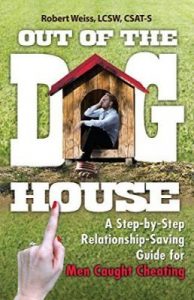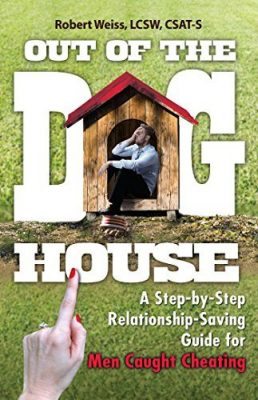 Review written by Scott Brassart
Review written by Scott Brassart
In the addiction/recovery world, infidelity is more common than most of us would like to admit. Many of us cheated while we were active in our addiction. Sometimes we managed to fuse our substance abuse with sexual activity, so our addiction and our cheating traveled hand in hand. Others of us waited until we were in recovery before we start sleeping around. Suddenly, we were sober and starting to both look and feel better, and our long-suppressed sex drive kicked in. Then, before we knew it, we had cheated.
“Eventually, we learned that if we truly wanted to save our relationship, we would have to do more. But what?”
Whenever our cheating occurred, we deeply damaged our primary relationship. Feelings were hurt, trust was lost, and the intimate connection that tied us to our significant other was decimated. Most of us tried to either cover-up our cheating with continued (but better) lies and secrets, or to buy forgiveness with gifts, extra attention, vacations, and the like. However, these tactics did not repair the damage. Eventually, we learned that if we truly wanted to save our relationship, we would have to do more. But what?
Robert Weiss’s latest book, Out of the Doghouse, answers precisely that question. In this informative and easy-to-read volume Weiss provides cheating men with step-by-step relationship-saving advice. (The book is focused on male cheaters, though most of the info would also apply to female cheaters.)
“Notably, this definition does not talk about specific sexual or romantic behaviors. Instead, it focuses on what matters most to a betrayed partner—the loss of relationship trust.”
Weiss begins with a digital age definition of cheating, noting that in today’s world, thanks to digital devices, there are more ways to cheat than ever before. He even gives a tech-inclusive definition of infidelity, describing it as “the breaking of trust that occurs when you keep intimate, meaningful secrets from your primary partner.” Notably, this definition does not talk about specific sexual or romantic behaviors. Instead, it focuses on what matters most to a betrayed partner—the loss of relationship trust. Weiss writes, “For cheated-on partners, it’s not any specific sexual or romantic act that causes the most pain. Instead, it’s the lying, the secret keeping, the lies of omission, the manipulation, and the fact that they can no longer trust a single thing the cheating spouse says or does.”
As Out of the Doghouse progresses, Weiss discusses the things cheating men tend to do that make things worse rather than better, such as continuing to lie and keep secrets, blaming people other than themselves for their infidelity, and trying to calm their mate instead of letting her be rightfully angry. More importantly, he gives a roadmap for healing. For the most part, this boils down to cheating men becoming rigorously honest in all facets of life as a way of restoring trust, and then working to reestablish emotional connection and intimacy within the relationship.
After reading this book, it is clear that without proper guidance cheating men—who are typically unaware of the type and degree of pain they have caused their betrayed partner—have little chance of healing a broken relationship. Happily, Out of the Doghouse provides a clear and concise message about owning the mess and cleaning it up. Throughout the book, Weiss gives no-nonsense, straightforward advice about relationships and cheating. This is exactly the guidance cheating men need to navigate the roadblocks to relationship renewal in ways that will not only save a damaged relationship, but make it better than ever.



